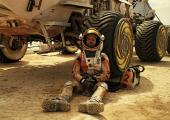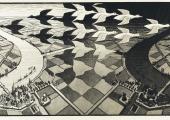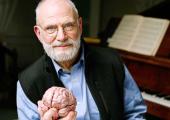OLIVER SACKS REMEMBERED Acclaimed neurologist and author Oliver Sacks has died aged 82
The acclaimed neurologist and author Oliver Sacks has died aged 82
Oliver Sacks, peerless explorer of the human brain, has today died of cancer aged 82. Inspired by case histories of patients suffering from neurological disorders, Sacks's eloquent musings on consciousness — which he termed 'neurological novels' — included The Man Who Mistook His Wife For a Hat and Awakenings, the former adapted into a Michael Nyman opera, the latter an Oscar-nominated film. His combination of intellectual rigour, philosophical expressiveness and powerful compassion illuminated numerous conditions for a readership extending far beyond the medical community. In memory of Sacks, theartsdesk republishes our 2011 review of Imagine: The Man Who Forgot How to Read and Other Stories, BBC Two's glimpse into his remarkable work.
The man who mistook Oprah Winfrey for Michelle Obama. Or indeed, the man who mistook his own reflection for another distinguished-looking bearded gentleman. Yes, the world’s most famous neurologist, Oliver Sacks, has confessed to “face blindness” - a lifelong inability to recognise faces, even his own face or the faces of the preternaturally famous. Last night’s Imagine found Alan Yentob revisiting Sacks (who he last encountered three years ago for a documentary on the mysteries of musical appreciation) to follow up on this story.










